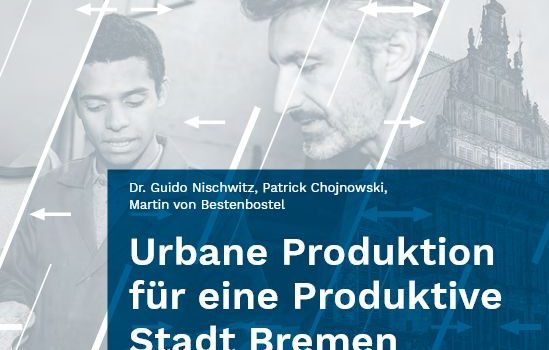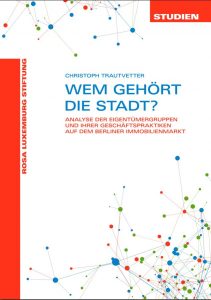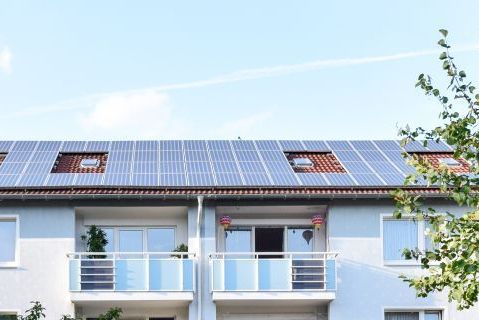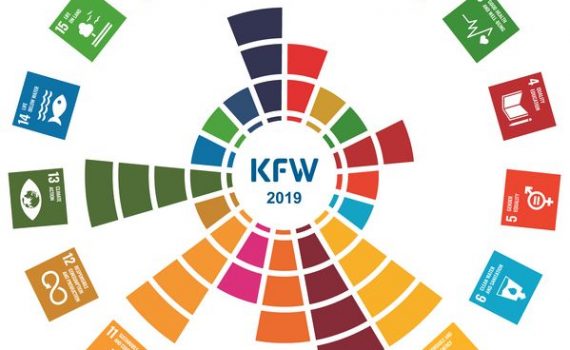Thüga closed the 2021 financial year with a good result. The approximately 100 municipal utilities and regional suppliers of the Thüga Group fully fulfilled their supply mandate and continued to drive forward the energy turnaround despite burdensome general conditions.
Kategorie für Blog: City
The German Association of Cities, the Global Parliament of Mayors and the international cities network ICLEI have joined forces to form a Cities Alliance to accompany the German G7 Presidency. The alliance is organising a conference on Tuesday, 3 May a U7 Mayors Summitwhich brings together high-ranking representatives of cities from the G7 countries. Representatives of the media are invited to follow the event virtually. The international dialogue will take place under the heading "Engaging the Urban World - Cities as Engines of Change for Peace, Democracy and Sustainability".. It is the most important event of cities in the framework of the German G7 Presidency. A joint declaration by the cities will also be adopted: In the „Urban7 Mayors Declaration“ the city leaders from the G7 countries will present their expectations of politics and business in order to meet the global challenges on the ground.
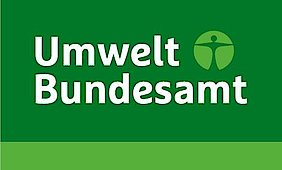 After a significant decline in the previous year, greenhouse gas emissions in Germany are on the rise again. Thus, around 762 million tonnes of greenhouse gases were released in 2021 - a good 33 million tonnes or 4.5 percent more than in 2020. Overall, emissions in Germany have thus fallen by 38.7 percent since 1990. The increase in the last year is particularly noticeable in the energy sector: This shows an increase of 27 million tonnes CO2-equivalents, as increased demand for electricity, lower electricity generation from renewable energies and the higher gas price led to increased use of coal for electricity generation. Electricity generation from renewables fell by seven per cent, mainly due to poor wind conditions. In the transport and building sectors, emissions were above the annual ceilings set by the Federal Climate Protection Act. This is shown by the latest calculations of the Federal Environment Agency (UBA), which are based on the specifications of the Federal Climate Protection Act and the EU-Renewable Energy Directive (RED) were presented today.
After a significant decline in the previous year, greenhouse gas emissions in Germany are on the rise again. Thus, around 762 million tonnes of greenhouse gases were released in 2021 - a good 33 million tonnes or 4.5 percent more than in 2020. Overall, emissions in Germany have thus fallen by 38.7 percent since 1990. The increase in the last year is particularly noticeable in the energy sector: This shows an increase of 27 million tonnes CO2-equivalents, as increased demand for electricity, lower electricity generation from renewable energies and the higher gas price led to increased use of coal for electricity generation. Electricity generation from renewables fell by seven per cent, mainly due to poor wind conditions. In the transport and building sectors, emissions were above the annual ceilings set by the Federal Climate Protection Act. This is shown by the latest calculations of the Federal Environment Agency (UBA), which are based on the specifications of the Federal Climate Protection Act and the EU-Renewable Energy Directive (RED) were presented today.
[caption id="attachment_28516" align="alignleft" width="560"] Award-winning project "Stadt Landschaft Burg" of the Federal Prize 2020 - © Bundespreis Stadtgrün / Hergen Schimpf[/caption]
The Federal Ministry of Housing, Urban Development and Building today announced the Federal Urban Green Award 2022. This year, the focus is on the topic of "Climate adaptation and quality of life".
Federal Minister Klara Geywitz: "Climate change is a stress test for our cities. We need more trees for a better urban climate, we need soils that can absorb heavy rainfall, we need less sealed surfaces for more biodiversity and to prevent residential neighbourhoods from heating up. With the Federal Urban Green Award 2022, we are honouring the pioneering work that is already shaping the necessary transformation of cities."
Award-winning project "Stadt Landschaft Burg" of the Federal Prize 2020 - © Bundespreis Stadtgrün / Hergen Schimpf[/caption]
The Federal Ministry of Housing, Urban Development and Building today announced the Federal Urban Green Award 2022. This year, the focus is on the topic of "Climate adaptation and quality of life".
Federal Minister Klara Geywitz: "Climate change is a stress test for our cities. We need more trees for a better urban climate, we need soils that can absorb heavy rainfall, we need less sealed surfaces for more biodiversity and to prevent residential neighbourhoods from heating up. With the Federal Urban Green Award 2022, we are honouring the pioneering work that is already shaping the necessary transformation of cities."
 The new National Progress Report on the Implementation of the New Urban Agenda shows the state of sustainability in urban development in German municipalities. The report was prepared by the German Institute of Urban Affairs on behalf of the Federal Institute for Research on Building, Urban Affairs and Spatial Development (BBSR).
The new National Progress Report on the Implementation of the New Urban Agenda shows the state of sustainability in urban development in German municipalities. The report was prepared by the German Institute of Urban Affairs on behalf of the Federal Institute for Research on Building, Urban Affairs and Spatial Development (BBSR).
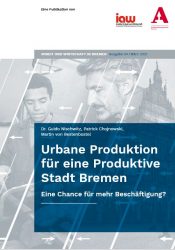 In a research project of the iaw, the conceptual foundations of urban production and the productive city were prepared with a view to the situation in Bremen and analysed in their impact structure. The study makes proposals for describing and recording urban production that is compatible with the city and embedding it in an urban development policy model of a productive city. On the basis of seven reference cities (Vienna, Zurich, Stuttgart, Hamburg, Frankfurt am Main, Wuppertal, Bochum), corresponding activities were filtered out and their transferability to the city of Bremen was examined. In the city of Bremen, eight locations and neighbourhoods (including the Tabakquartier and Kellogg-Areal) were examined with regard to their potential for implementing a productive city.
In a research project of the iaw, the conceptual foundations of urban production and the productive city were prepared with a view to the situation in Bremen and analysed in their impact structure. The study makes proposals for describing and recording urban production that is compatible with the city and embedding it in an urban development policy model of a productive city. On the basis of seven reference cities (Vienna, Zurich, Stuttgart, Hamburg, Frankfurt am Main, Wuppertal, Bochum), corresponding activities were filtered out and their transferability to the city of Bremen was examined. In the city of Bremen, eight locations and neighbourhoods (including the Tabakquartier and Kellogg-Areal) were examined with regard to their potential for implementing a productive city.
"Municipalities are crucial drivers for the sustainable development of our society," explains Dr. Werner Schnappauf, Chairman of the German Council for Sustainable Development (RNE). "All 17 sustainability goals are directly or indirectly related to the tasks of a municipality. The new reporting framework sustainable municipality, the BNK, can be a great help for further progress in the field of sustainability", says Schnappauf.
 A most welcome piece of news reached the city of Aachen this morning (17 March 2021): Federal Minister Horst Seehofer has announced this year's selection of the "National Projects of Urban Development" and announced that the development of the Büchel old town quarter will receive up to 5.5 million euros in funding. Aachen is thus one of four municipalities in NRW to have been awarded the contract. With the amount of funding, the city is in third place nationwide.
A most welcome piece of news reached the city of Aachen this morning (17 March 2021): Federal Minister Horst Seehofer has announced this year's selection of the "National Projects of Urban Development" and announced that the development of the Büchel old town quarter will receive up to 5.5 million euros in funding. Aachen is thus one of four municipalities in NRW to have been awarded the contract. With the amount of funding, the city is in third place nationwide.
 "The raw material wood is precious. It is therefore important to use it responsibly and in a way that conserves resources," warns Peter Aicher, Chairman of Holzbau Deutschland. Even if wood is affected by environmental influences or the bark beetle, it does not represent an inferior raw material, but has almost identical properties to conventional construction timber. "If the so-called 'calamity wood' has the same structural quality in terms of load-bearing capacity as conventional sawn timber, it can be used without restrictions," explains Aicher. In addition, the wood retains its important function as a CO2 sink, regardless of external impairments.
"The raw material wood is precious. It is therefore important to use it responsibly and in a way that conserves resources," warns Peter Aicher, Chairman of Holzbau Deutschland. Even if wood is affected by environmental influences or the bark beetle, it does not represent an inferior raw material, but has almost identical properties to conventional construction timber. "If the so-called 'calamity wood' has the same structural quality in terms of load-bearing capacity as conventional sawn timber, it can be used without restrictions," explains Aicher. In addition, the wood retains its important function as a CO2 sink, regardless of external impairments.
Animation from Jan Kamensky (2020)
 On the occasion of the meeting of EU Ministers for Urban Development and Territorial Cohesion on the "New Leipzig Charter", Daniela Wagner, spokesperson for urban development for Alliance 90/The Greens in the German Bundestag, explains:
We welcome the "New Leipzig Charter". Without the transformative power of cities and the ideas and drive of their residents, we will not be able to overcome the challenges of the climate crisis. Nevertheless, the Charter contains significant gaps. The guiding principle of the resilient city is missing. The development of robust and resilient cities is important in order to better assess risks and recognise and prevent dangers in good time. The guiding principle of the healthy city is also not mentioned - despite the heatwaves caused by the climate crisis, a never-ending stream of air pollutants from fossil fuelled combustion engines and the current challenge of a global pandemic.
On the occasion of the meeting of EU Ministers for Urban Development and Territorial Cohesion on the "New Leipzig Charter", Daniela Wagner, spokesperson for urban development for Alliance 90/The Greens in the German Bundestag, explains:
We welcome the "New Leipzig Charter". Without the transformative power of cities and the ideas and drive of their residents, we will not be able to overcome the challenges of the climate crisis. Nevertheless, the Charter contains significant gaps. The guiding principle of the resilient city is missing. The development of robust and resilient cities is important in order to better assess risks and recognise and prevent dangers in good time. The guiding principle of the healthy city is also not mentioned - despite the heatwaves caused by the climate crisis, a never-ending stream of air pollutants from fossil fuelled combustion engines and the current challenge of a global pandemic.
 Glaciers are melting, sea levels are rising, heat waves and heavy rainfall are increasing: The consequences of climate change are visible and tangible worldwide, and the window of opportunity to act is shrinking. In order to significantly limit the global effects of climate change, the emission of greenhouse gases on earth must be drastically reduced. The agreement reached by the international community in Paris in 2015 sets the goal of limiting global warming to well below 2 degrees Celsius, but preferably to 1.5 degrees Celsius. Now, the Wuppertal Institute presented a study with possible cornerstones that can help to achieve the 1.5 degree target by 2035. The study shows that a climate-neutral energy system by 2035 is very ambitious, but in principle feasible, provided that all possible strategies from today's perspective are bundled. This requires, above all, bringing forward and intensifying measures that are described in many studies as necessary to achieve greenhouse gas neutrality by 2050.
Glaciers are melting, sea levels are rising, heat waves and heavy rainfall are increasing: The consequences of climate change are visible and tangible worldwide, and the window of opportunity to act is shrinking. In order to significantly limit the global effects of climate change, the emission of greenhouse gases on earth must be drastically reduced. The agreement reached by the international community in Paris in 2015 sets the goal of limiting global warming to well below 2 degrees Celsius, but preferably to 1.5 degrees Celsius. Now, the Wuppertal Institute presented a study with possible cornerstones that can help to achieve the 1.5 degree target by 2035. The study shows that a climate-neutral energy system by 2035 is very ambitious, but in principle feasible, provided that all possible strategies from today's perspective are bundled. This requires, above all, bringing forward and intensifying measures that are described in many studies as necessary to achieve greenhouse gas neutrality by 2050.
"The world's water resources are currently facing the greatest threat in the history of mankind," write aquatic ecologists in their recently published statement paper. More than one hundred professional societies of aquatic ecosystem research around the globe have signed the joint statement. In it, the researchers show the dramatic effects that climate change is having on aquatic ecosystems worldwide. They call for immediate concerted action by politics, business, science and society to halt the progress of climate change.
 Zur heutigen Kabinettssitzung und der dabei geplanten Befassung mit dem Entwurf eines Deutschen Ressourceneffizienzprogramms III (ProgRess III) erklären Dieter Janecek, Sprecher für Industriepolitik und digitale Wirtschaft, und Dr. Bettina Hoffmann, Sprecherin für Umweltpolitik und Umweltgesundheit:
Mit ProgRess III tritt die Bundesregierung auf der Stelle. Zwei Ressourceneffizenzprogramme der Bundesregierung konnten nicht verhindern, dass der deutsche Rohstoffverbrauch weiterhin steigt. Es ist absehbar, dass auch das dritte Ressourcenprogramm der Bundesregierung daran nichts ändert. Auch ProgRess III bleibt ein längliches Sammelsurium von Plänen, Ankündigungen und Prüfaufträgen.
Zur heutigen Kabinettssitzung und der dabei geplanten Befassung mit dem Entwurf eines Deutschen Ressourceneffizienzprogramms III (ProgRess III) erklären Dieter Janecek, Sprecher für Industriepolitik und digitale Wirtschaft, und Dr. Bettina Hoffmann, Sprecherin für Umweltpolitik und Umweltgesundheit:
Mit ProgRess III tritt die Bundesregierung auf der Stelle. Zwei Ressourceneffizenzprogramme der Bundesregierung konnten nicht verhindern, dass der deutsche Rohstoffverbrauch weiterhin steigt. Es ist absehbar, dass auch das dritte Ressourcenprogramm der Bundesregierung daran nichts ändert. Auch ProgRess III bleibt ein längliches Sammelsurium von Plänen, Ankündigungen und Prüfaufträgen.
The parliament of Bremen wants to oblige the use of solar energy on all new and existing buildings in Bremen and Bremerhaven. Whenever the roof surface is completely renewed, they are to be equipped with a solar system in the future. This is photovoltaics and, if necessary, also solar thermal energy. The Senate is currently examining the latter.
 To ensure that significantly more houses in Hamburg are greened with plants on roofs and facades, the environmental authority is making €500,000 in funding available from 1 June. A maximum of € 100,000 and up to 40 % of the costs, applicants can receive in future in grants. Applications can be made from construction costs of €1,000. Funding will be provided for ground and wall-based greening of new and existing buildings, preparatory work, climbing aids, plants, planting measures, irrigation systems, completion maintenance and the ancillary costs for professional planning and supervision.
To ensure that significantly more houses in Hamburg are greened with plants on roofs and facades, the environmental authority is making €500,000 in funding available from 1 June. A maximum of € 100,000 and up to 40 % of the costs, applicants can receive in future in grants. Applications can be made from construction costs of €1,000. Funding will be provided for ground and wall-based greening of new and existing buildings, preparatory work, climbing aids, plants, planting measures, irrigation systems, completion maintenance and the ancillary costs for professional planning and supervision.
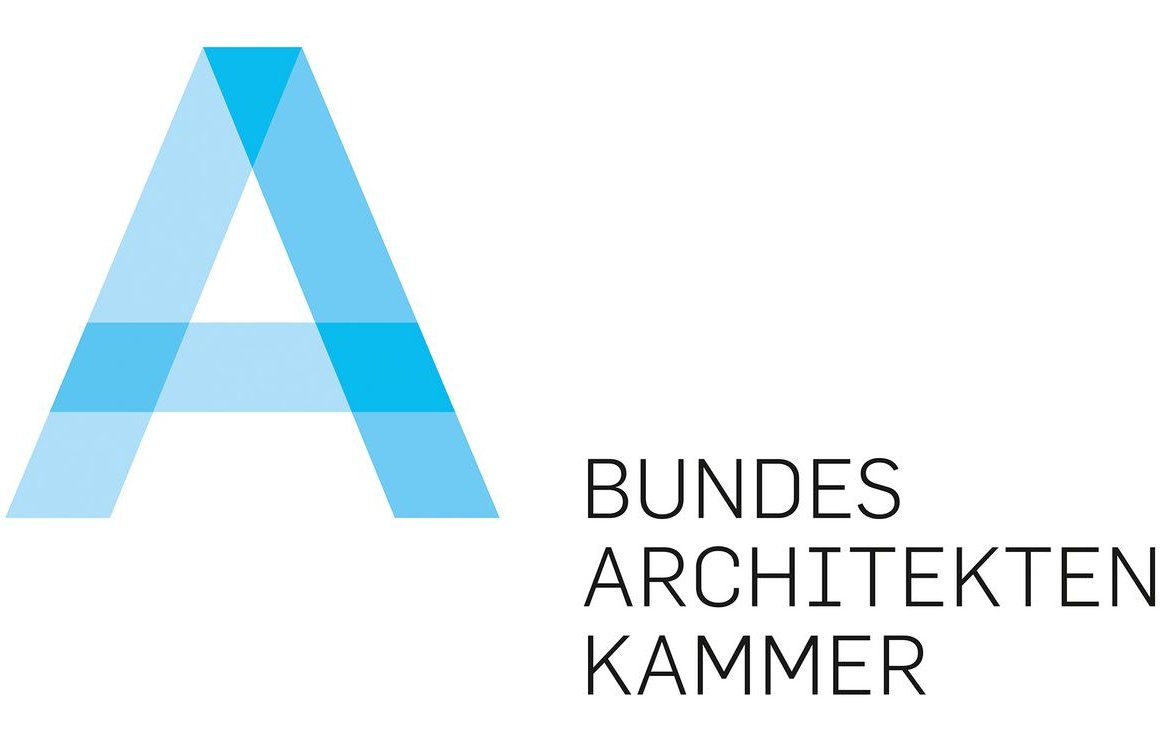 The Federal Chamber of Architects (BAK) and the Federal Foundation of Baukultur presented their proposal for a "Baukultur Innovation Programme" to politicians in Berlin today on behalf of the planning and construction industry.
Anne Katrin Bohle, State Secretary at the Federal Ministry of the Interior, Building and Community, accepted the four-point plan. In it, the authors suggest measures to overcome the coronavirus crisis that will have a lasting economic and social impact.
The Federal Chamber of Architects (BAK) and the Federal Foundation of Baukultur presented their proposal for a "Baukultur Innovation Programme" to politicians in Berlin today on behalf of the planning and construction industry.
Anne Katrin Bohle, State Secretary at the Federal Ministry of the Interior, Building and Community, accepted the four-point plan. In it, the authors suggest measures to overcome the coronavirus crisis that will have a lasting economic and social impact.
 Berlin/Cologne. Climate protection and adaptation to the consequences of climate change will become increasingly important for cities. This is one of the findings of the survey of (Lord) Mayors of large German cities* conducted by the German Institute of Urban Affairs in January and February 2020. Almost two-thirds of the respondents named climate protection as an important municipal issue for the future. This means that the number of mayors who attribute an increase in importance to this field of municipal policy action has more than tripled compared to the previous year. Future surveys will show how strongly this result was influenced by the protests of the 'Fridays for Future' movement.
Berlin/Cologne. Climate protection and adaptation to the consequences of climate change will become increasingly important for cities. This is one of the findings of the survey of (Lord) Mayors of large German cities* conducted by the German Institute of Urban Affairs in January and February 2020. Almost two-thirds of the respondents named climate protection as an important municipal issue for the future. This means that the number of mayors who attribute an increase in importance to this field of municipal policy action has more than tripled compared to the previous year. Future surveys will show how strongly this result was influenced by the protests of the 'Fridays for Future' movement.
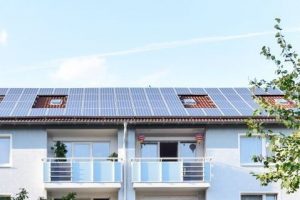 In Vienna, as a rule, no residential building may be erected without a solar system in the future. This is stipulated in an amendment to the building code, which is currently being evaluated, the red-green city government informed on Monday. Currently, such a photovoltaic obligation applies only to industrial buildings.
In Vienna, as a rule, no residential building may be erected without a solar system in the future. This is stipulated in an amendment to the building code, which is currently being evaluated, the red-green city government informed on Monday. Currently, such a photovoltaic obligation applies only to industrial buildings.
 Konturen einer solidarischen Stadtpolitik
Anton Brokow-Loga (Hrsg.),
Frank Eckardt (Hrsg.)
Städte ohne Wachstum – eine bislang kaum vorstellbare Vision. Doch Klimawandel,
Ressourcenverschwendung, wachsende soziale Ungleichheiten und viele andere
Zukunftsgefahren stellen das bisherige Allheilmittel Wachstum grundsätzlich infrage. Wie wollen
wir heute und morgen zusammenleben? Wie gestalten wir ein gutes Leben für alle in der Stadt?
Konturen einer solidarischen Stadtpolitik
Anton Brokow-Loga (Hrsg.),
Frank Eckardt (Hrsg.)
Städte ohne Wachstum – eine bislang kaum vorstellbare Vision. Doch Klimawandel,
Ressourcenverschwendung, wachsende soziale Ungleichheiten und viele andere
Zukunftsgefahren stellen das bisherige Allheilmittel Wachstum grundsätzlich infrage. Wie wollen
wir heute und morgen zusammenleben? Wie gestalten wir ein gutes Leben für alle in der Stadt?
- Over EUR 28 billion for "climate protection measures": KfW is one of the most important supporters of the Paris climate goals
- Promotional bank is a global pioneer with its standardised SDG mapping
- Strong international interest in KfW SDG mapping
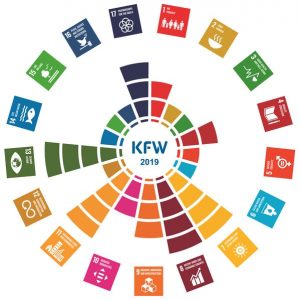 KfW is today publishing the results of the SDG mapping of new commitments throughout the Group in 2019. In order to clarify the individual contribution made by KfW's new commitments to achieving the UN Sustainable Development Goals, KfW has developed a standardised procedure: 1,500 indicators are used each year to determine to which SDGs KfW's new commitments can be assigned. This makes the contribution transparent at both group and business sector level.
KfW is today publishing the results of the SDG mapping of new commitments throughout the Group in 2019. In order to clarify the individual contribution made by KfW's new commitments to achieving the UN Sustainable Development Goals, KfW has developed a standardised procedure: 1,500 indicators are used each year to determine to which SDGs KfW's new commitments can be assigned. This makes the contribution transparent at both group and business sector level.Funding is available for greening facades and roofs as well as for unsealing on private, public and commercial properties in the Hannover city area.
 The aim of the handbook is to provide municipal actors with concrete tools that can be used to keep and locate production in urban areas. In the joint project UrbaneProduktion.Ruhr, funded by the Federal Ministry of Education and Research, research was carried out from October 2016 to December 2019 into whether and how it is possible to bring production back to the city.
The aim of the handbook is to provide municipal actors with concrete tools that can be used to keep and locate production in urban areas. In the joint project UrbaneProduktion.Ruhr, funded by the Federal Ministry of Education and Research, research was carried out from October 2016 to December 2019 into whether and how it is possible to bring production back to the city.
Senate adopts concrete measures for the next ten years and sets new CO2-targets for 2030 and 2050
Cooperation between Stadtwerke and berlinovo for largest German tenant power project Mietersonne Kaulsdorf, the largest German tenant power project with a capacity of almost 3.4 megawatts (MW), is being built by Berliner Stadtwerke for the Berlin housing association berlinovo in Marzahn-Hellersdorf. Tenants of 4,300 apartments will be able to benefit from the green electricity generated directly on their roofs.
Eight hectares of modules built on Berlin's roofs, almost half of them on residential buildings Berlin's municipal utilities are clearly picking up the pace in the expansion of solar installations in the capital. The municipal green electricity producer exceeded the 10 megawatt threshold at the end of September.
From the meeting of the Berlin Senate on 24 September 2019: At its meeting today, the Senate adopted the report to the House of Representatives on "Sustainability in construction: Berlin builds with wood", following a presentation by the Senator for the Environment, Transport and Climate Protection, Regine Günther. The Senate is consistently pursuing the goal of making Berlin [...]
Nationwide, construction with wood for buildings up to the high-rise limit is to be made easier and the Model Building Code (MBO) adapted accordingly. This was adopted by the Construction Ministers' Conference (BMK) at the end of the two-day conference in Norderstedt. In addition to climate-friendly construction with a focus on wood, the topic of "affordable housing" was also on the agenda.
Anne Katrin Bohle has been State Secretary for Construction at the Federal Ministry of the Interior, Building and Housing since March 2019. The "Leipzig Charter" is to be further developed into the "Leipzig Charter 2.0" by the time of the German EU Council Presidency in 2020. The "Leipzig Charter", which is little known even among experts, invokes the values of "citizens' co-determination and self-determination, calls for the [...]
BUND and the ifeu - Institute for Energy and Environmental Research have produced various studies on building issues over the last 10 years, including "13 measures against energy waste in the boiler room". This study now deals with the core issue of cost allocation for energy modernisation in rented buildings. Already in the year [...]
Closing the implementation and ambition gap Ahead of the crucial meeting on 20.9.2019, the SRU addresses the members of the Climate Cabinet with an Open Letter. The SRU stresses that the measures to be adopted must be suitable for achieving the 2030 climate target. Especially in the transport and building sector there is an enormous need for action. The Council [...]
03.07.2019 In its meeting on 3 July 2019, the Magistrate decided to introduce the principles for "socially appropriate land use in Darmstadt" (SoBoDA) and to establish a responsible project group. The set of rules is one element of the 21 points of the bundle of measures of the Housing Policy Concept of the City of Science Darmstadt, which is a new overarching political steering instrument [...]
German cities believe that greater cohesion in society is necessary and want to make their contribution to this. The President of the German Association of Cities, Mayor Markus Lewe from Münster, said at the start of the annual general meeting of the leading municipal association in Dortmund: "Sticking together in our cities - that is reality, demand and hope at the same time. [...]
City as a pioneer of mobility change Wuppertal is making a name for itself in terms of sustainable and modern transport systems. It is not only the 100-year-old suspension railway that has long stood for the city as a symbol of innovative modes of transport. The new Nordbahn route for cyclists and pedestrians above the roofs of the city has brought great recognition nationwide. A modern [...]






